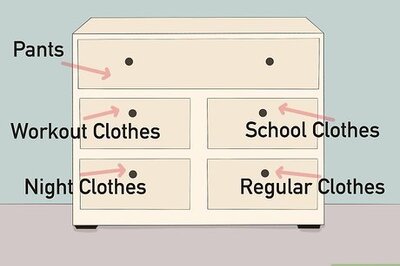
views
Breakthrough research has been carried out by scientists who have found a way to grow mini-organs from the cells of a foetus. It could prove to be a lifesaver for both the mother and the child if they encounter any complications during the pregnancy period.
Despite all the modern technology and medical advancements, a woman and her unborn child are at a high risk of suffering life-threatening complications during the period of pregnancy. But now, scientists have successfully created a method through which they can grow mini-organs known as organoids, outside of a womb.
The scientists used the amniotic fluid which protects the baby inside the uterus to form the organoids from the lung, intestinal and kidney cells found in the fluid. This was the very first time the scientists were able to develop these organoids from untreated cells.
The research was carried out by the scientists of University College London and Great Ormond Street Hospital. They took the stem cells from the samples of amniotic fluid which was collected during 12 pregnancies for prenatal testing. Mattia Gerli, a stem-cell biologist from the university said, “For the first time, we can access the foetus without touching the foetus.” According to her, the researchers will now be able to observe and study the development of a foetus in a womb.
The scientists developed the lung organoid from the cells of a foetus which suffered with the condition of congenital diaphragmatic hernia, also known as CDH. In this condition, a baby’s diaphragm has a hole, because of which the organs push up on the lungs and interfere with its growth. Comparing the organoids before the treatment and after, showcased significant differences in the development of the unborn baby, which pointed towards the success and benefits of the treatment.
A fetal surgeon from the Great Ormond Street Institute of Child Health, Professor Paolo De Coppi said, “This is the first time that we’ve been able to make a functional assessment of a child’s congenital condition before birth.”

















Comments
0 comment